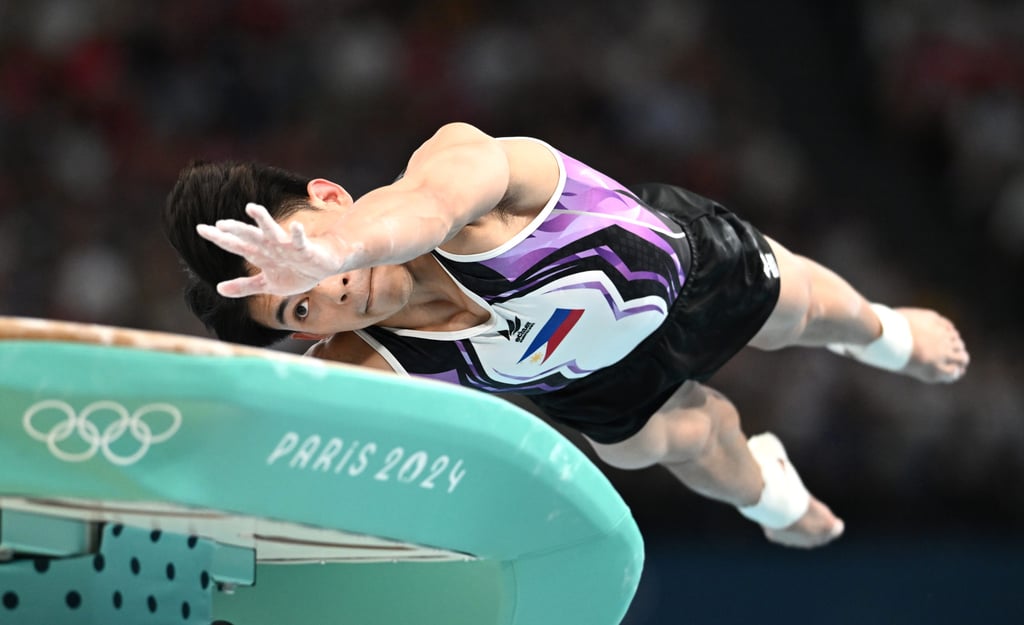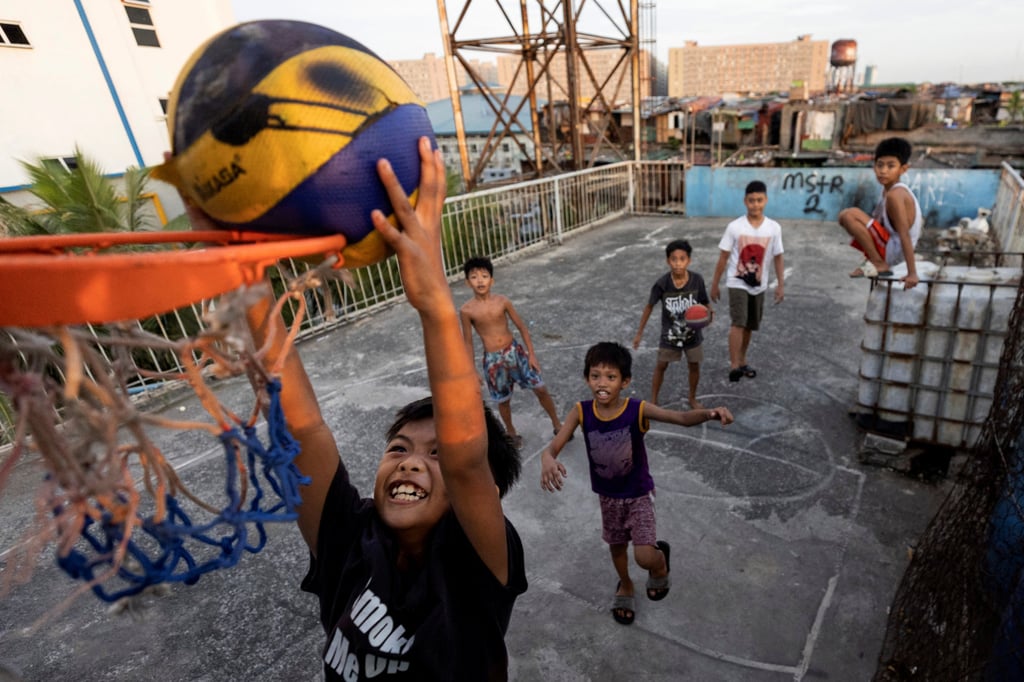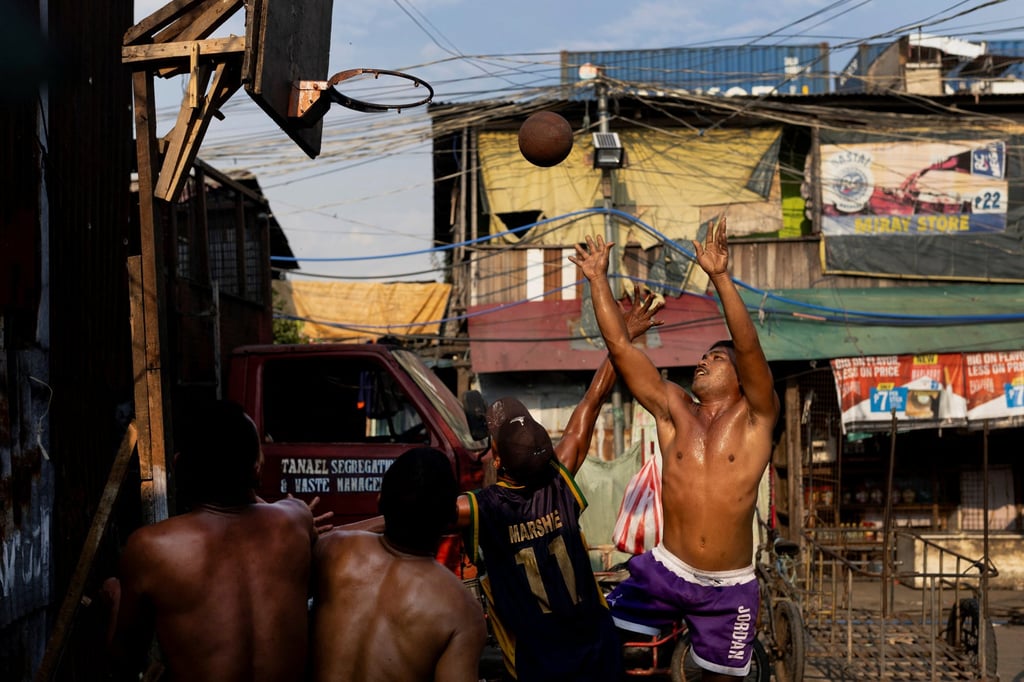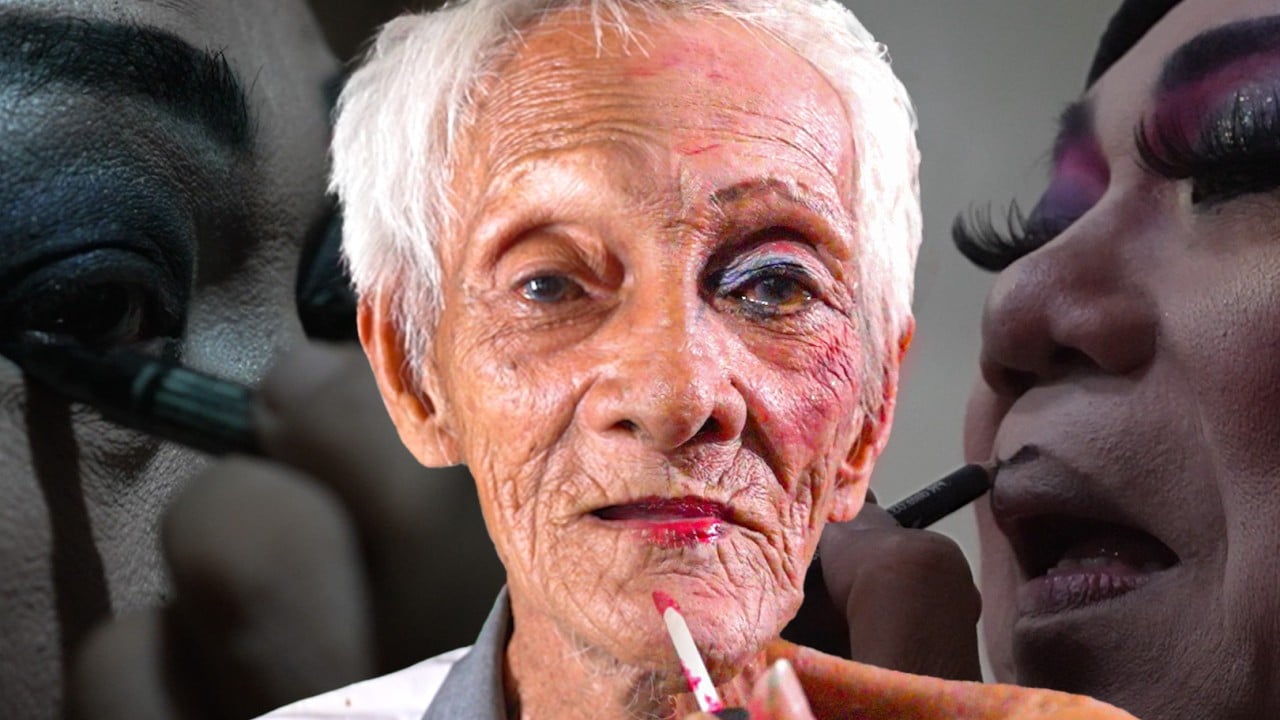Last week, Philippine artistic gymnast Carlos Yulo became only the country’s second athlete in its history to bag an Olympic gold, scoring two medals in the men’s floor and vault categories at the 2024 Paris Games, three years after Hidilyn Diaz won a gold medal in women’s weightlifting.
His feats led to an outpouring of adulation across the country, with social media users hailing both Yulo and Diaz for smashing stereotypes in sports and winning in categories perceived to be dominated by the opposite gender.
“Filipinos are celebrating the gold medals won by a woman in weightlifting and a man in gymnastics. May this send a message that sports have no gender, and we should stop letting gender stereotypes limit the future of our athletes,” one user said on social media platform X.
Other users insisted it was high time that Filipino parents eschewed long-held gender norms in sports to help their children reach their fullest potential.

“Some ‘abilities’ remain mistakenly associated with certain genders. Men are presumed to be strong, while women are expected to be graceful. These gendered expectations or stereotypes limit not only the potential of individuals but of societies at large. These biases are also seen in sports, and thus, many are often guilty of undermining the strength of women, and the grace of men,” said Vince Liban, national convenor of the youth-led gender lobbying group PANTAY.
“I consider Carlos Yulo and Hidilyn Diaz as champions, not only in the field of sports, but also for equality. They are great proof that we can shatter stereotypes that limit men, women, and athletes of diverse sexual orientation, gender identity, and expression from achieving their full potential,” Liban said.
Basketball and manhood
Discussions on Yulo’s gymnastics accomplishments have drawn comparisons to basketball, widely seen as a national obsession with a vibrant fan base and heavy support from private funders because of its profitability.
Basketball has also been seen as a symbol of Filipino masculinity – a point of contention among the Philippines’ LGBTQ communities and individuals for whom these sports have served as a barometer of their sexuality and gender identity.

“There’s an unspoken reason why so many people are side-eyeing basketball these days in the light of Carlos’ Olympic wins in gymnastics,” author Ian Rosales Cosacot wrote on X, in a thread that was shared over 2,000 times.
“For the longest time, basketball has really been symbolic of the Philippine macho … for showcasing a performative masculinity that many Philippine men ascribe to. As a child, I remember the grown-up men around me drinking beer, and thumping their chests as they cheered for their favourite basketball teams on TV.”
When the United States occupied the Philippines in 1898 after more than three centuries of Spanish colonial rule, they brought various aspects of their culture closer to Filipinos, including sports such as boxing, which was introduced by US servicemen, and basketball, which was spread through the public school system the US had implemented across the country.
“The Spaniards normalised machismo, and the Americans introduced basketball. Because of patriarchy, these sports stuck around,” said Athena Charanne Presto, a sociologist from the University of the Philippines.
Presto said various Filipinos’ experiences of being judged on their gender expression or sexuality based on their prowess or interest in sports, particularly basketball, showed how entrenched gender stereotypes were in athletics.
“I’ve been seeing people, especially those who identify as part of the LGBTQ community, who have been forced to play basketball when they were young, or those who were gifted with a basketball on their birthday, even if they know they don’t care for the sport,” Presto said.

Similar gender expectations were also placed on women, Presto said, where an interest in playing basketball would be deemed as socially inappropriate. Women who displayed athletic prowess should instead be moulded into volleyball players, for which its all-women professional volleyball league was extremely popular in the country.
Although the Philippines is seen as one of the most gender-inclusive countries in Asia – it ranked 16th in the Global Gender Gap Report, behind Australia and New Zealand – critics argue this notion of gender inclusivity is only surface-level. In 2023, a study by the Philippine Institute of Development Studies found that 99.5 per cent of Filipinos held biases against women.
“If you’re a woman, you should not be playing basketball, otherwise you would be labelled a lesbian. From what you see in school, the media, to even within the family, the kinds of coverage that [popular sports] such as men’s basketball teams and women’s volleyball teams get show that gender norms and stereotypes run at an institutional level,” Presto said.
Cosacot, when contacted by This Week in Asia, said: “I have been getting so many responses to my tweets detailing parental or familial pressure – usually from elder male relatives – to play [basketball] to prove their manhood, and courting disappointment when they fail.”
“Volleyball and gymnastics are somehow considered feminine sports. So if you were male and you played these last two sports, you were definitely rendered sexually suspicious,” Cosacot said.
Yulo himself was reportedly not spared from such speculations as a rising gymnastics star until he went public with his girlfriend on social media in 2022.
Olympics is not enough
The nationwide celebration of Yulo’s achievements has ushered in a wave of hope among observers and gender advocates that his historic win would help break down long-held gender stereotypes in sports and other fields.
“A huge portion of Filipinos now understand not only the triumph of Carlos Yulo’s win for the nation, but also for inspiring kids and their families who want to pursue their dreams in sports – that prejudice and gender stereotypes are the enemies of success,” Liban said.
Yet Presto warns that a single event such as the athlete’s Olympic campaign is not enough to move the needle in gender expectations in sports.
“On social media, people are celebrating and rightfully so. But there needs to be a necessary acknowledgement that one single event cannot really be a watershed moment,” she said.
The sociologist added that a “whole-of-society approach” was needed to make sports more inclusive, and “government and societal efforts have to be hand in hand”.
Government funding and resource allocation have long been sore points for Philippine athletes. The Philippine Sports Commission is set to receive over 720 million pesos (US$12.6 million) in funds next year, 37 per cent lower than this year.
The lack of support has led to some athletes accepting offers to represent other countries, as in the case of Wesley So, now the highest-rated chess player in the US who moved to represent the US Chess Federation in 2015.
“If Carlos Yulo’s win indeed influences proper investment in sports not deemed profitable or pushes the boundaries of gender or certain policy changes or certain shifts in societal attitudes, then I can say that his win is really very phenomenal and societally transformative in that aspect,” Presto said.
Don’t miss any of our Olympics coverage. Download the SCMP app and enable alerts to enjoy 14 days of unlimited access:



